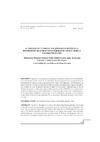Please use this identifier to cite or link to this item:
https://accedacris.ulpgc.es/jspui/handle/10553/7773
| Title: | Autoconcepto social en jóvenes españoles y brasileños que practican ejercicio físico versus no practicantes | Other Titles: | The social self-concept of young spanish and brazilian people who practice physical exercise versus the non-practicing | Authors: | Ramírez Gómez, Montserrat Guillén, Félix Machargo Salvador, Julio Luján Henríquez, Isabel |
UNESCO Clasification: | 61 Psicología | Keywords: | Autoconcepto social Jóvenes Transcultural Ejercicio físico Social self-concept, et al |
Issue Date: | 2008 | Journal: | Revista Iberoamericana de Psicologia del Ejercicio y el Deporte | Abstract: | El propósito de la presente investigación es analizar la relación entre actividad física y autoconcepto social a través de la comparación de jóvenes practicantes y no practicantes de actividad física. La muestra está compuesta por 476 sujetos (292 españoles y 184 brasileños), de edades entre 19 y 30 años. Se analizaron los distintos grupos de edad, género, lugar de procedencia y número de veces de práctica semanal. Se aplicó un cuestionario, elaborado para tal fin, de 32 ítems. Se realizaron análisis descriptivos, diferencias de medias, ANOVAS y correlaciones. Los resultados indican que no existen diferencias en el autoconcepto social entre los practicantes y los no practicantes. También se observa que los jóvenes brasileños muestran un autoconcepto social similar al de los jóvenes españoles. No se encuentran diferencias de género para el autoconcepto. The aim of this paper is to analyze the relationship between physical activity and social self-concept in young people who practice some physical activity and young people who don’t. The research, developed with 476 subjects (292 Spanish and 184 Brazilian) between the ages of 19 and 30, attended to the different ages of the subjects, their gender, their nationality and the frequency of the sport practice. A questionnaire of 32 items was designed to this end. We carried out descriptive analysis, mean differences, analysis of variance (ANOVA) and correlations. The results show that there are no differences in the social self-concept between those who do some sport and those who don’t; the social self-concept of the Brazilian youngsters is similar to that of the Spanish youngsters; and for both men and women the social self-concept is the same. |
URI: | https://accedacris.ulpgc.es/handle/10553/7773 | ISSN: | 1886-8576 | Source: | Revista iberoamericana de psicología del ejercicio y el deporte [ISSN 1886-8576],v. 3 (2), p. 259-273 (2008) | URL: | http://dialnet.unirioja.es/servlet/articulo?codigo=2974896 |
| Appears in Collections: | Rev. Iberoam. psicol. ejerc. deporte. 2008. v.3, n.2 Artículos |
Page view(s)
135
checked on Nov 9, 2024
Download(s)
201
checked on Nov 9, 2024
Google ScholarTM
Check
Share
Export metadata
Items in accedaCRIS are protected by copyright, with all rights reserved, unless otherwise indicated.
